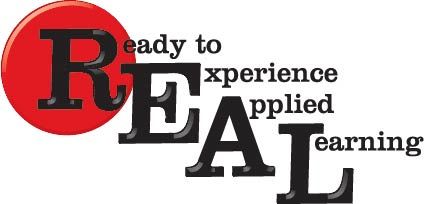The REAL Program Application and Guidelines
The REAL Program at Francis Marion University solicits proposals for funding for new and existing programs in experiential or nontraditional learning. Experiential learning opportunities occur outside the traditional classroom, library or laboratory. REAL program funds are only for undergraduate students.
- To be eligible for funds programs should include means for student reflection, discussion, analysis and evaluation of the learning experience.
- Application for REAL grants indicates a willingness to participate fully in assessment of the program.
- Future REAL grants may vary depending upon competing grants, funds availability and assessment of programs.
Best Practices in Experiential Learning:
Please keep in mind the following best practices considerations for nontraditional learning programs.
- Eligibility requirements clearly established in writing.
- Students file applications presenting evidence of eligibility.
- Faculty/department or school approve applicants.
- Worksites are designated.
- A faculty advisor is assigned to work with students.
- An external supervisor is identified at worksite.
- Orientation is conducted for students prior to the beginning of the activity.
- Faculty advisor meets regularly with students.
- Faculty advisor and worksite supervisor remain in contact with each other.
- Faculty advisor reports to the school/department the appropriateness of the worksite for future nontraditional learning activities.
- Outcomes are evaluated using methods such as:
- pre-test/ post-test
- pre-survey/post-survey
- journals
- portfolios
- daily work logs
- meetings with students
- contacts with worksite supervisor
- student papers or presentations reflecting on the transformative nature of the nontraditional learning experience
- worksite supervisor provided evaluations of students performance
Proposal Guidelines and Restrictions
- REAL grants are open to academic programs only and one person should be identified as the principal investigator.
- REAL grant proposals must be complete with itemized dollar amounts.
- Grant recipients agree to have students complete a ten-item, on-line rating form.
- Grant recipients will also complete a fairly short on-line survey.
- In most cases, preference will be given to projects that potentially will benefit the most people.
- REAL grants should be less than $5,000. Faculty may submit multiple grants but none for more than $5,000.
- REAL grants generally do not pay for meals or for mileage for personal vehicles when university van would be cheaper. A university van holds up to 15 including the driver and costs approximately $100 a day and 29 cents per mile for gas. The driver must be 21 or older and a faculty or staff member must be in the van.
- REAL grants involving student wages will generally pay $10.00 per hour.
- When requesting funds for hotels please specify the number of rooms, number of nights and estimated cost per night.
Additional guidelines
- The committee will not pay for teaching or modifying existing courses. A request for funds to create a new experiential learning activity will be considered but is a low priority.
- The committee will approve stipends for research projects or internships only if the students are not receiving academic credit for the activity.
- Payment for meals, when approved should follow state guidelines.
- We do not fund multiyear grants. Future funding is not guaranteed but with progress reports and satisfactory evaluations support is likely.
- Faculty cannot be paid a stipend for research related to a REAL Program grant.
- Faculty travel will be considered if it involves accompanying students and not covered by faculty development. Travel for faculty only is a low priority item.
- A faculty member wishing to take the same student to an additional REAL Program-funded activity must obtain a waiver by contacting the REAL Program coordinator.
Application Procedure:
Complete the items in the on-line application.Dr. Nicholas Newman, REAL Program Coordinator LSF 409M
